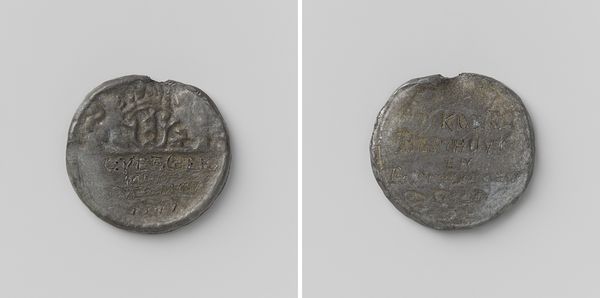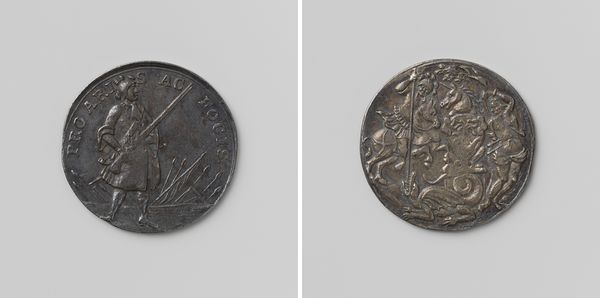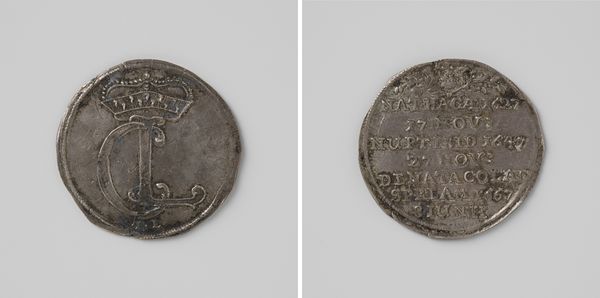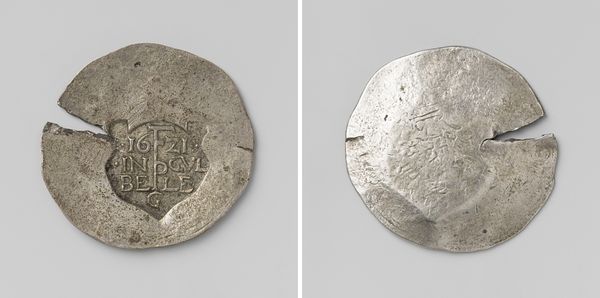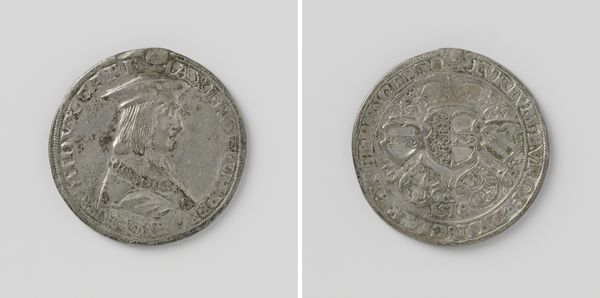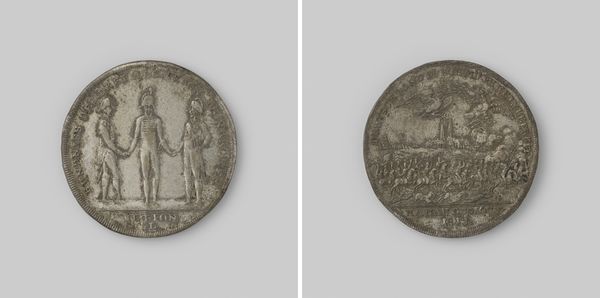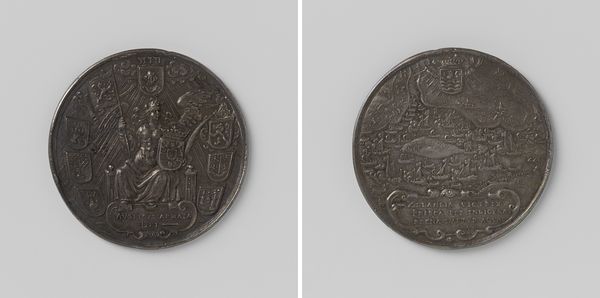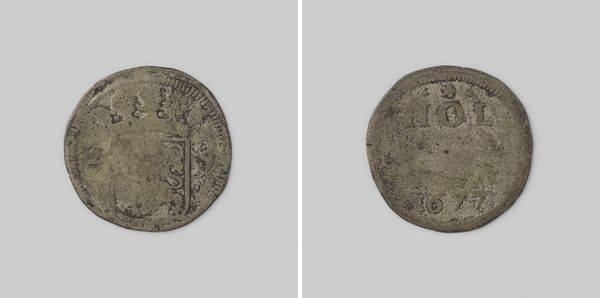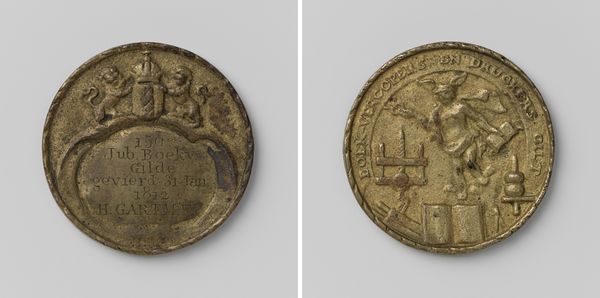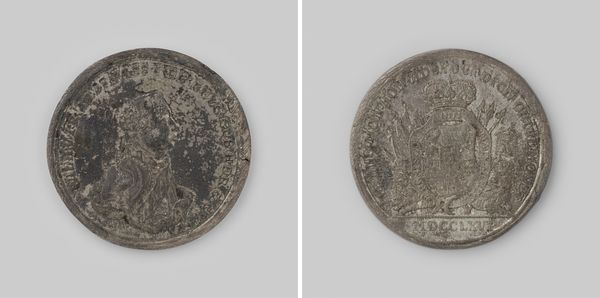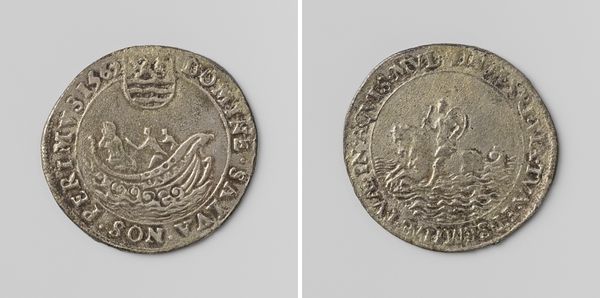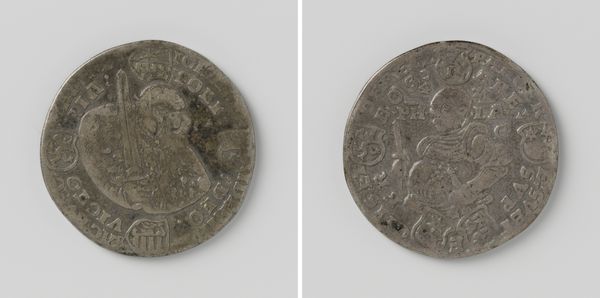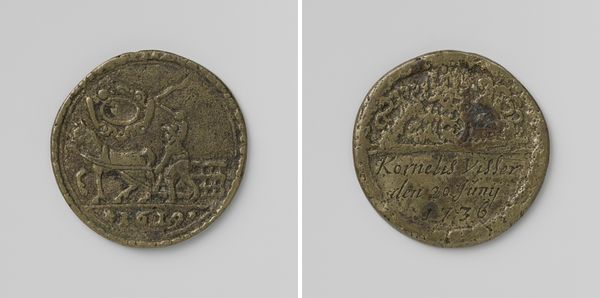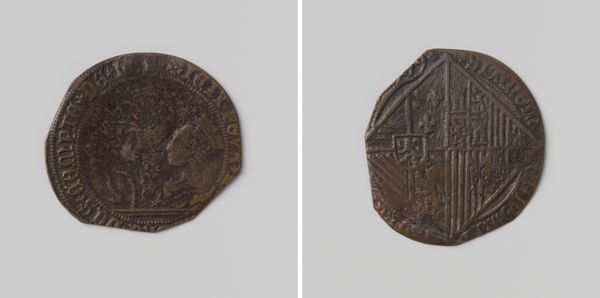
Beleg van Gulik door Albrecht, aartshertog van Oostenrijk, noodmunt met het gewicht van een kwart rijksdaalder, vervaardigd uit Dicken van Johann Reinhard I, graaf van Hanau-Lichtenberg, bestempeld me Possibly 1621 - 1629
0:00
0:00
anonymous
Rijksmuseum
print, metal, relief, engraving
#
portrait
#
baroque
# print
#
metal
#
sculpture
#
relief
#
history-painting
#
engraving
Dimensions: diameter 3.4 cm, weight 6.46 gr
Copyright: Rijks Museum: Open Domain
This is a necessity coin, made out of silver during the siege of Gulik, its irregular shape and worn surface tell a story of conflict and urgency. The coin’s surface is dominated by stamped symbols arranged in a cruciform pattern. This division reflects a structured, almost heraldic composition, where each quadrant contains symbolic information—dates, crests, and inscriptions—that speak to the historical context of its creation. The central inscription, framed by the year 1621, identifies the coin's purpose and origin, marking it as a product of the siege. The act of over-stamping a pre-existing coin is a semiotic act, where the old is overwritten by the new, reflecting the chaotic conditions of its making, questioning established monetary values. The crudeness of the over-stamping challenges the established meanings and categories of currency, turning a common coin into a symbol of resistance. The coin’s very form challenges the idea of fixed value, reminding us that meaning is not inherent but is constructed through historical circumstances.
Comments
No comments
Be the first to comment and join the conversation on the ultimate creative platform.
